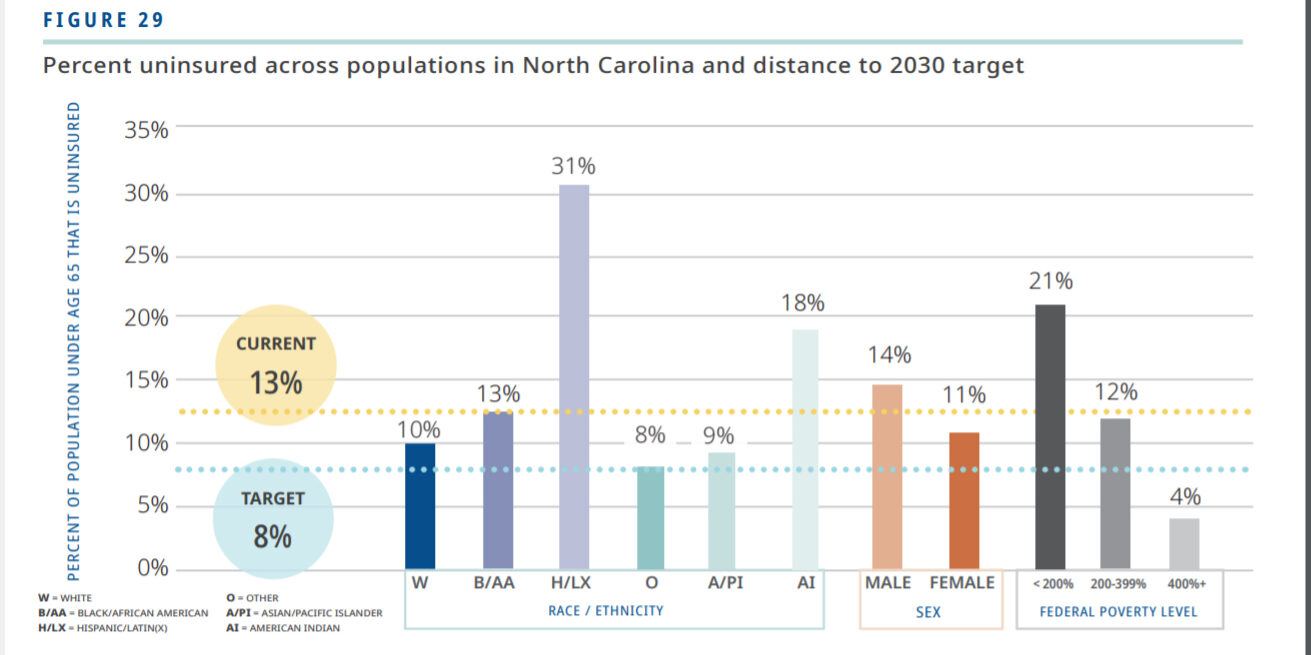

Written by Michelle Ries
Many NCIOM task forces and stakeholder convenings, most recently the Healthy NC 2030 Task Force, the Task Force on Serious Illness Care, and the Task Force for Perinatal System of Care, have recommended reducing uninsured rates as a crucial element in improving both access to care and health outcomes. According to Healthy NC 2030, in 2017, 13% of North Carolinians under age 65 still did not have health insurance coverage. In recent weeks, as the world and our state have come to understand the dangers of the COVID-19 pandemic, the importance of ensuring health care coverage and affordable access to care has come into stark relief. While the Families First Coronavirus Response Act, passed on March 18, made COVID-19 testing free, out-of-pocket costs for hospitalization can be high, estimated at $1,300 for those with insurance. Estimates of total hospitalization costs are around $20,000, an enormous financial burden for those without insurance.

For years now, the debate over Medicaid expansion has been front and center in North Carolina politics. In 2019, the North Carolina General Assembly and Governor Roy Cooper reached a stalemate over the issue, with Governor Cooper vetoing the 2019 NCGA budget over lack of provisions to expand Medicaid coverage, and no revised budget has passed in the time since the veto.
While the General Assembly is not scheduled to reconvene until May, the North Carolina Department of Health and Human Services has sought and received several emergency waivers from the federal Centers for Medicare and Medicaid Services that would allow them greater flexibility in using Medicaid funds to provide care during the COVID-19 pandemic. These waivers include provisions to temporarily suspend Medicaid fee-for-service prior authorization requirements; reimburse out of state providers; waive some provider screening requirements; allow facilities to be reimbursed for services provided to a different unlicensed facility in the event of emergency evacuation or necessary relocation of residents; and assist others dealing with admission assessments and hearing/appeals timelines. These waivers aim to allow North Carolina Medicaid to focus resources and improve care for Medicaid beneficiaries during the pandemic, but do not change Medicaid income eligibility requirements.
While the steps currently taken by NC Medicaid are important and necessary, NCIOM stakeholders have repeatedly identified the reduction of uninsured rates in our state as key to improving health and reducing economic hardship and health inequity. In the wake of COVID-19, our stakeholders’ recommendations for closing the health insurance coverage gap are of critical importance.